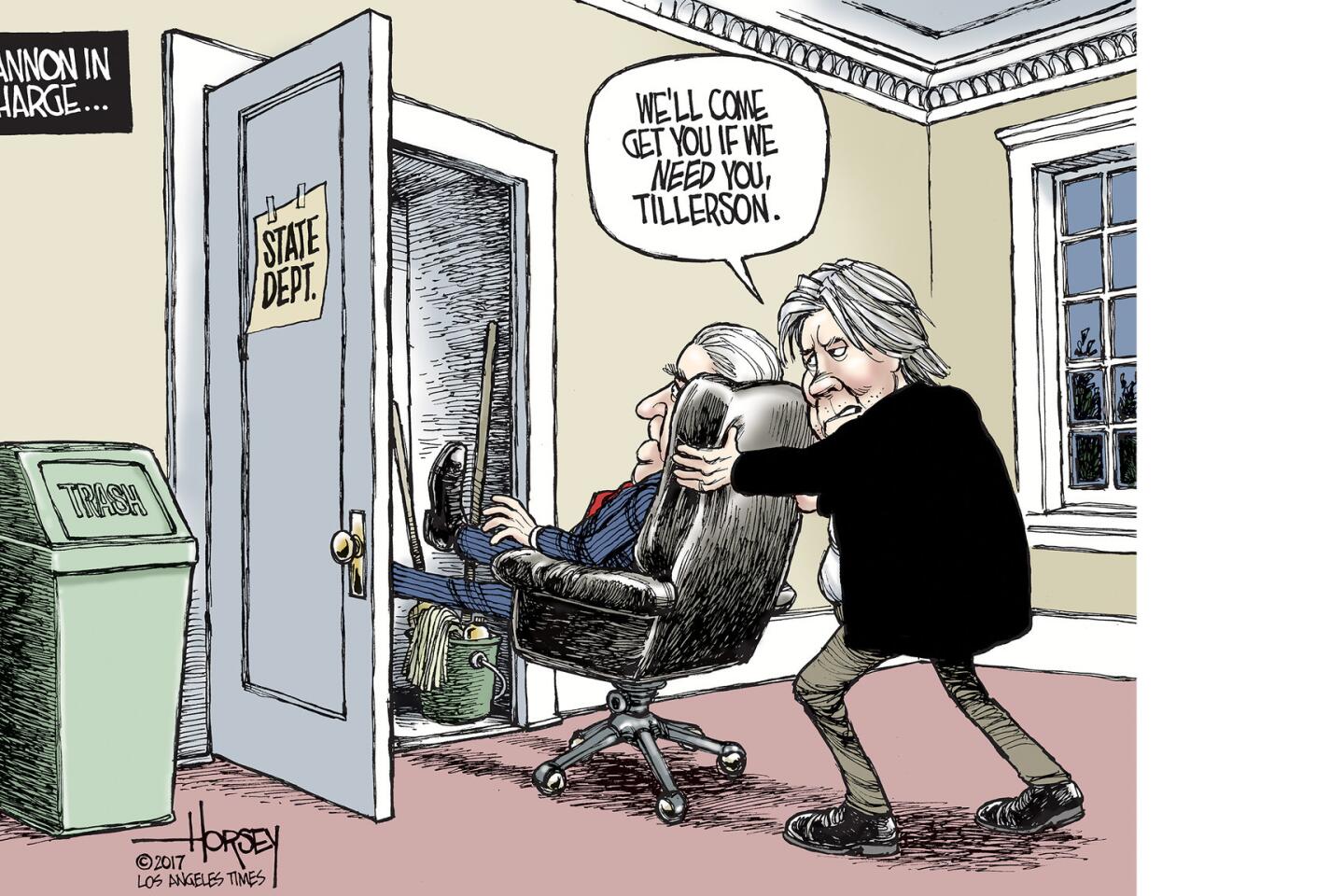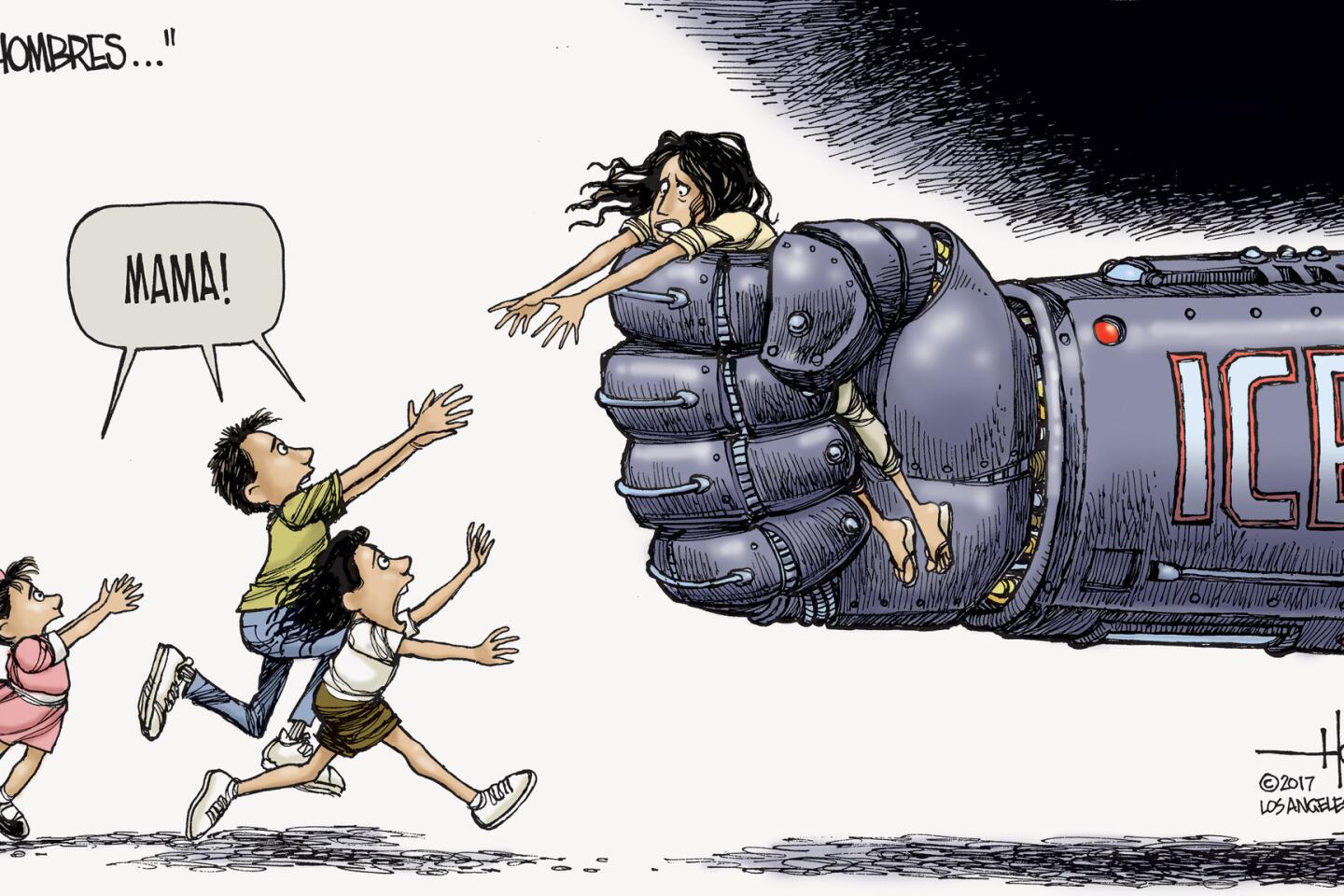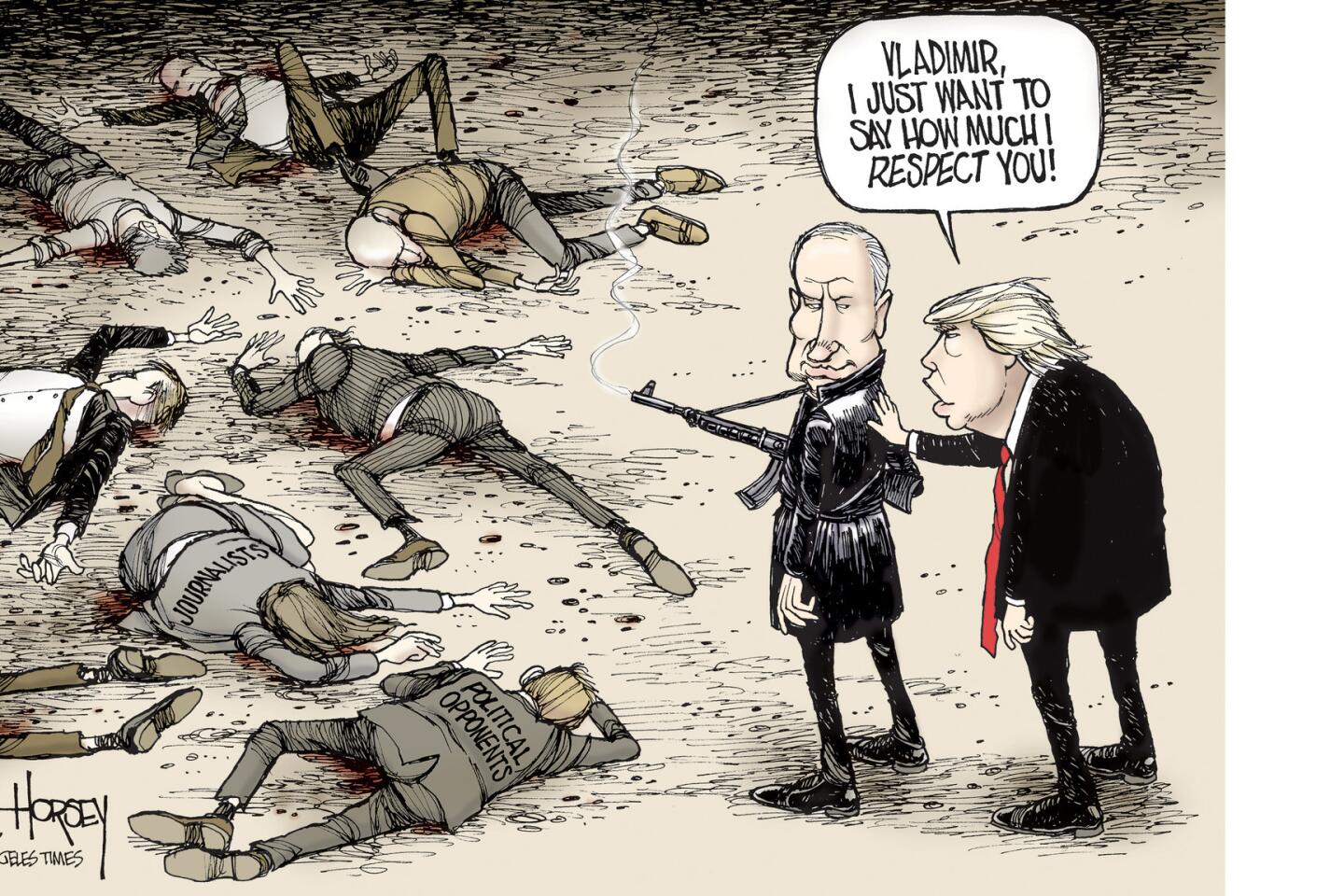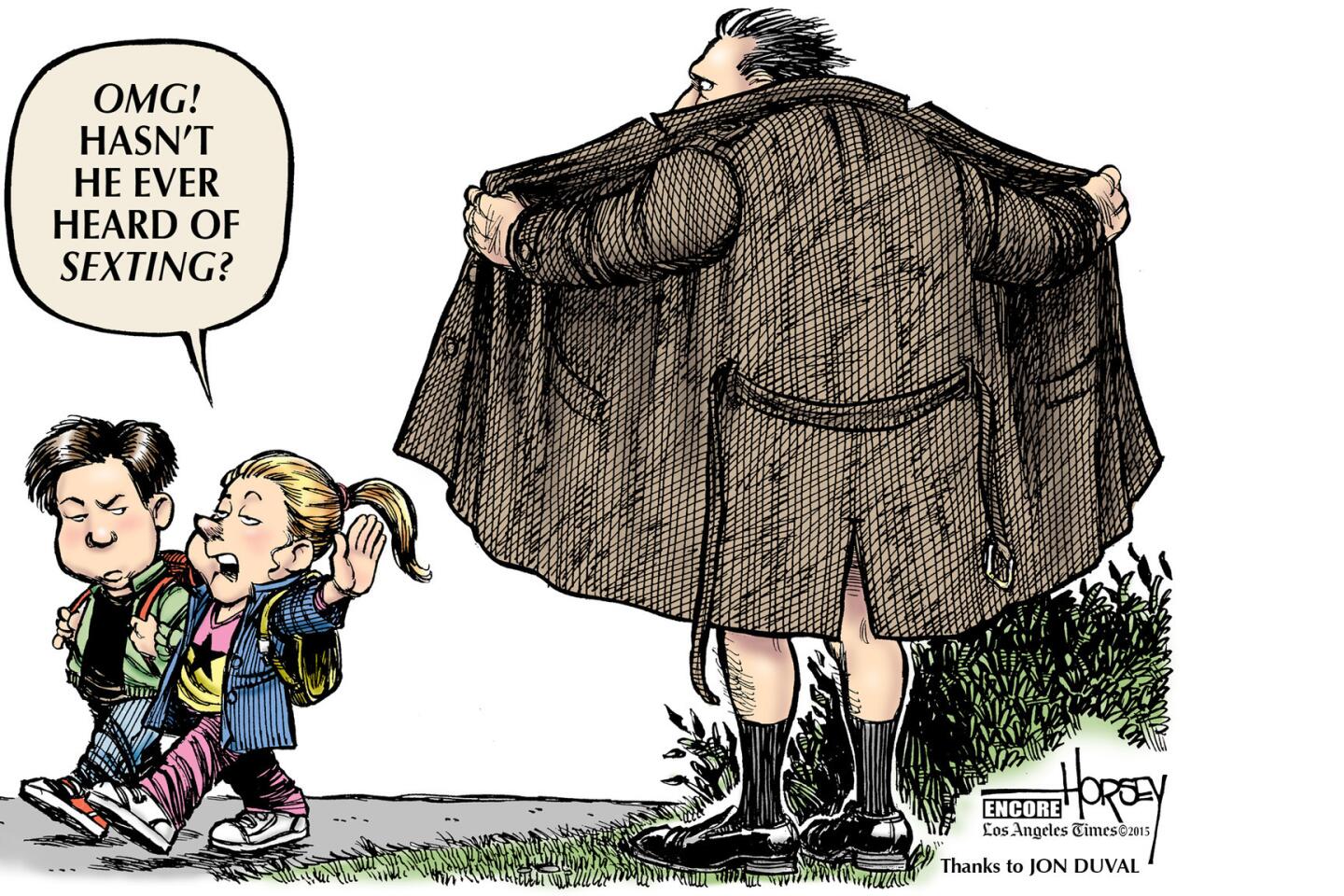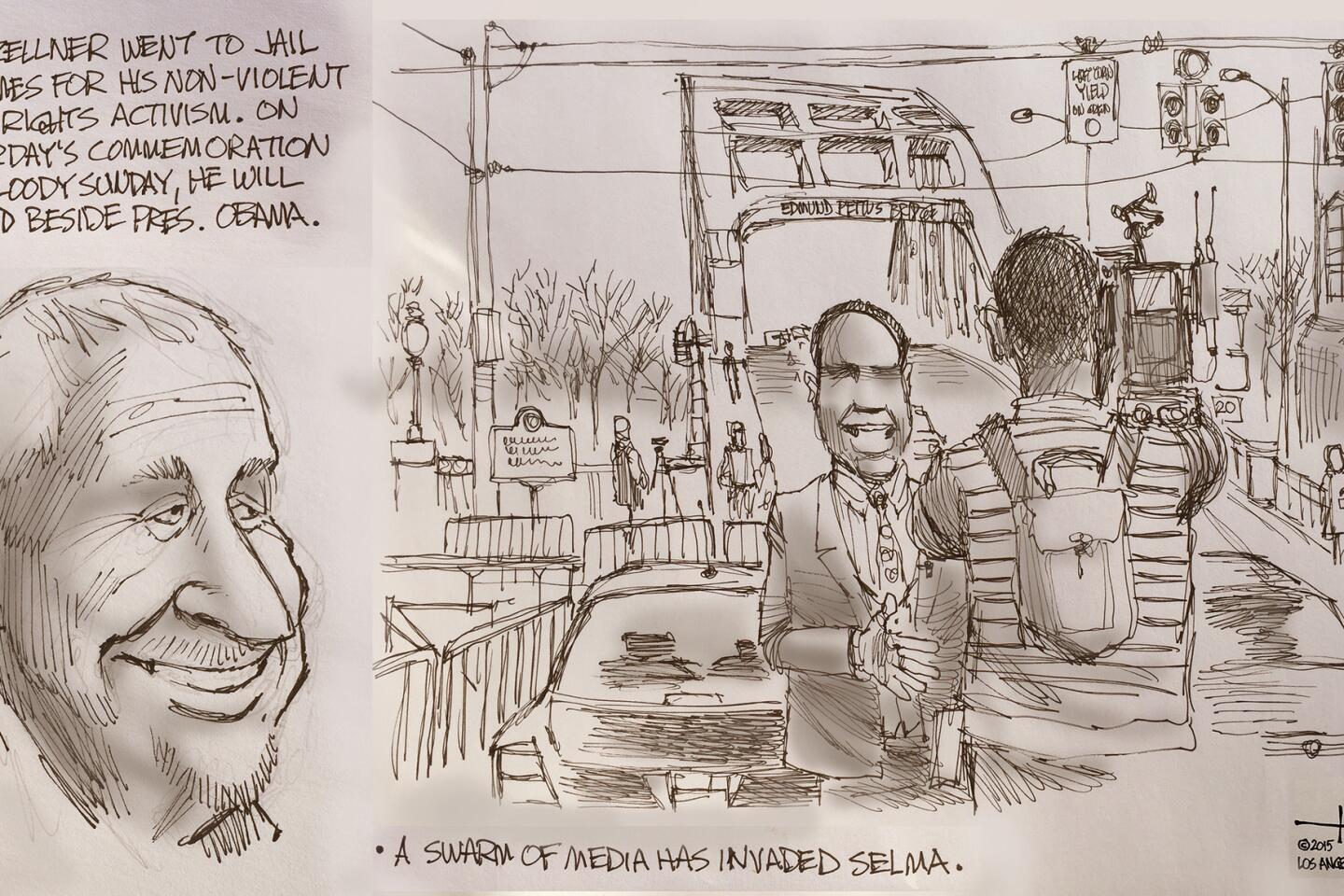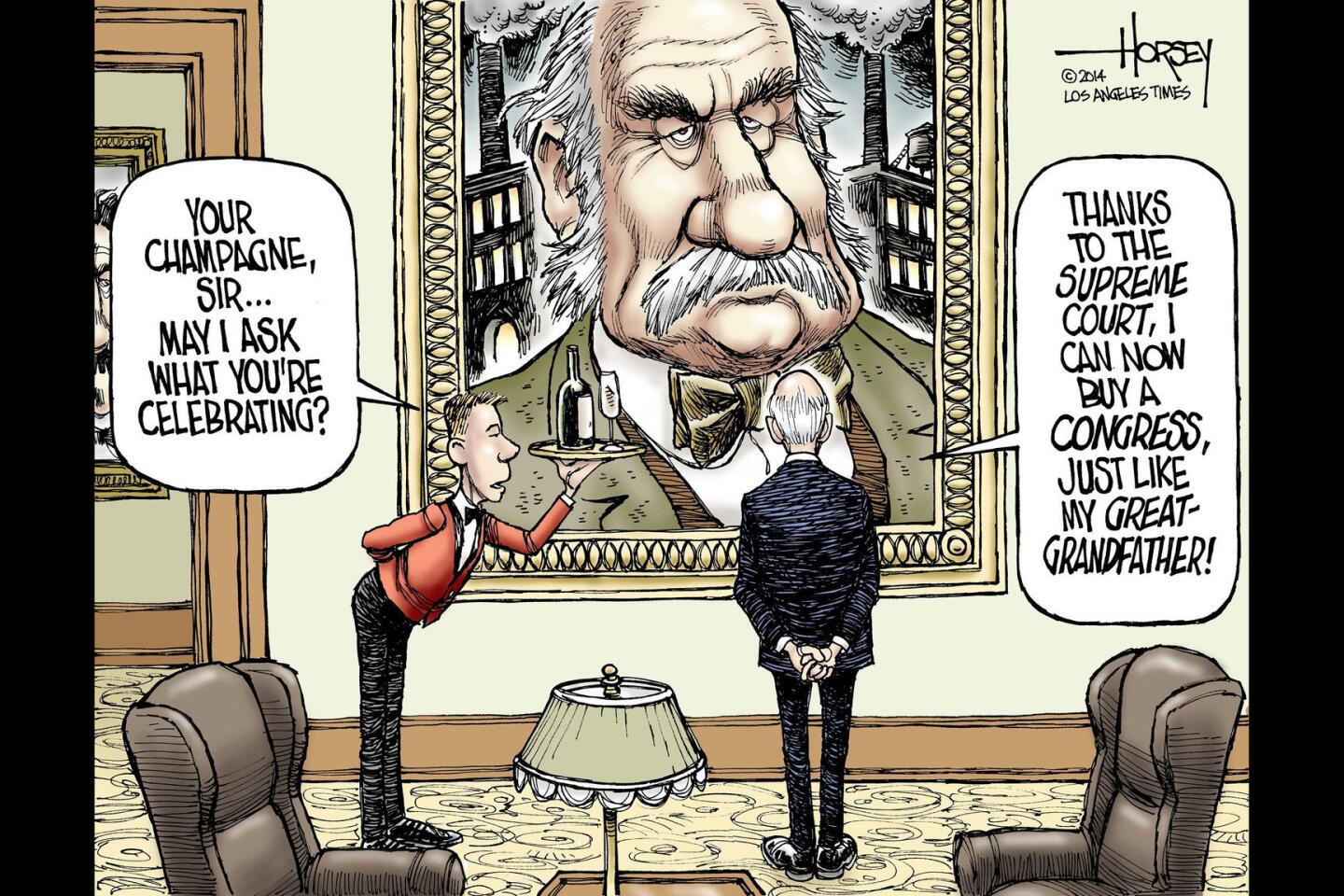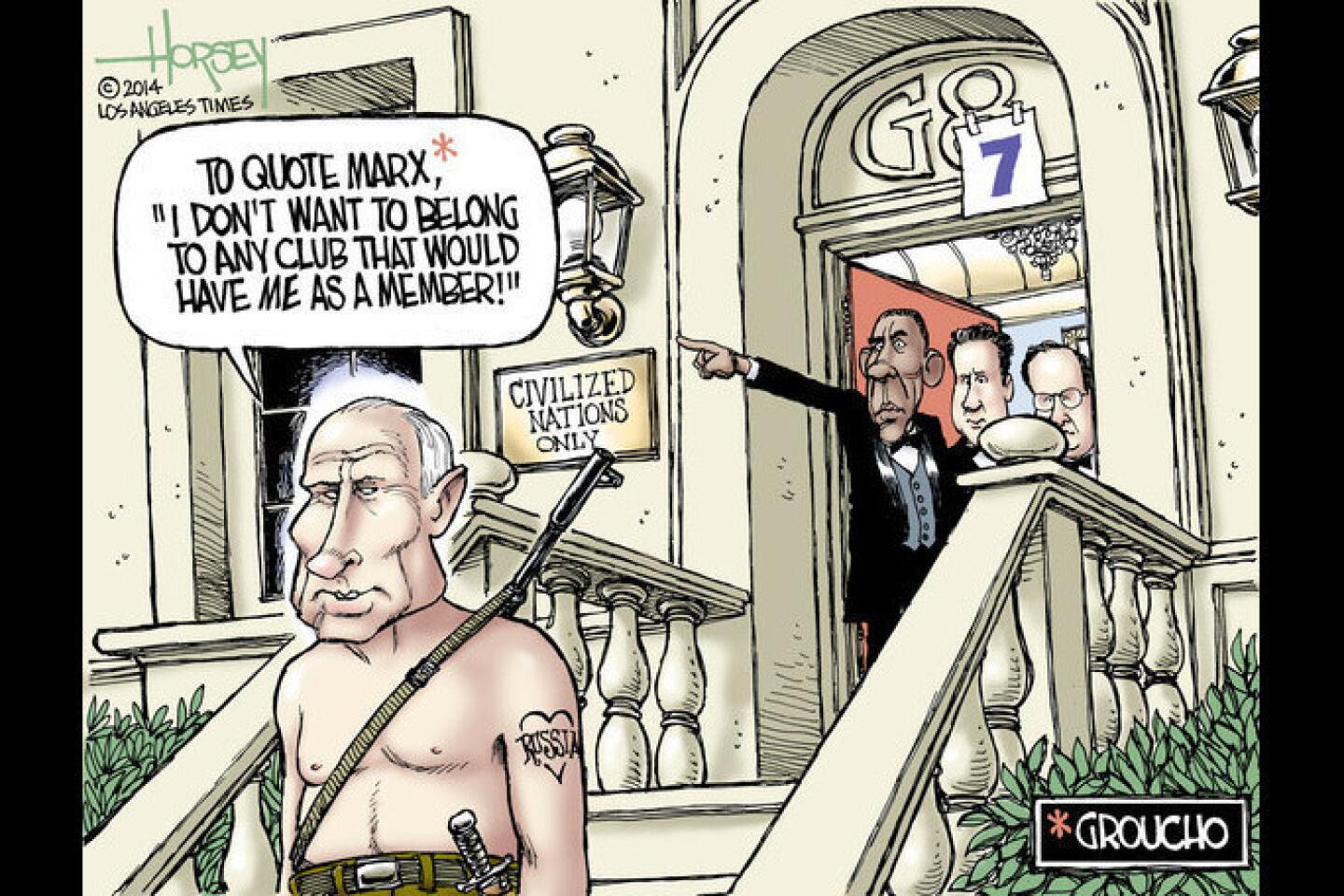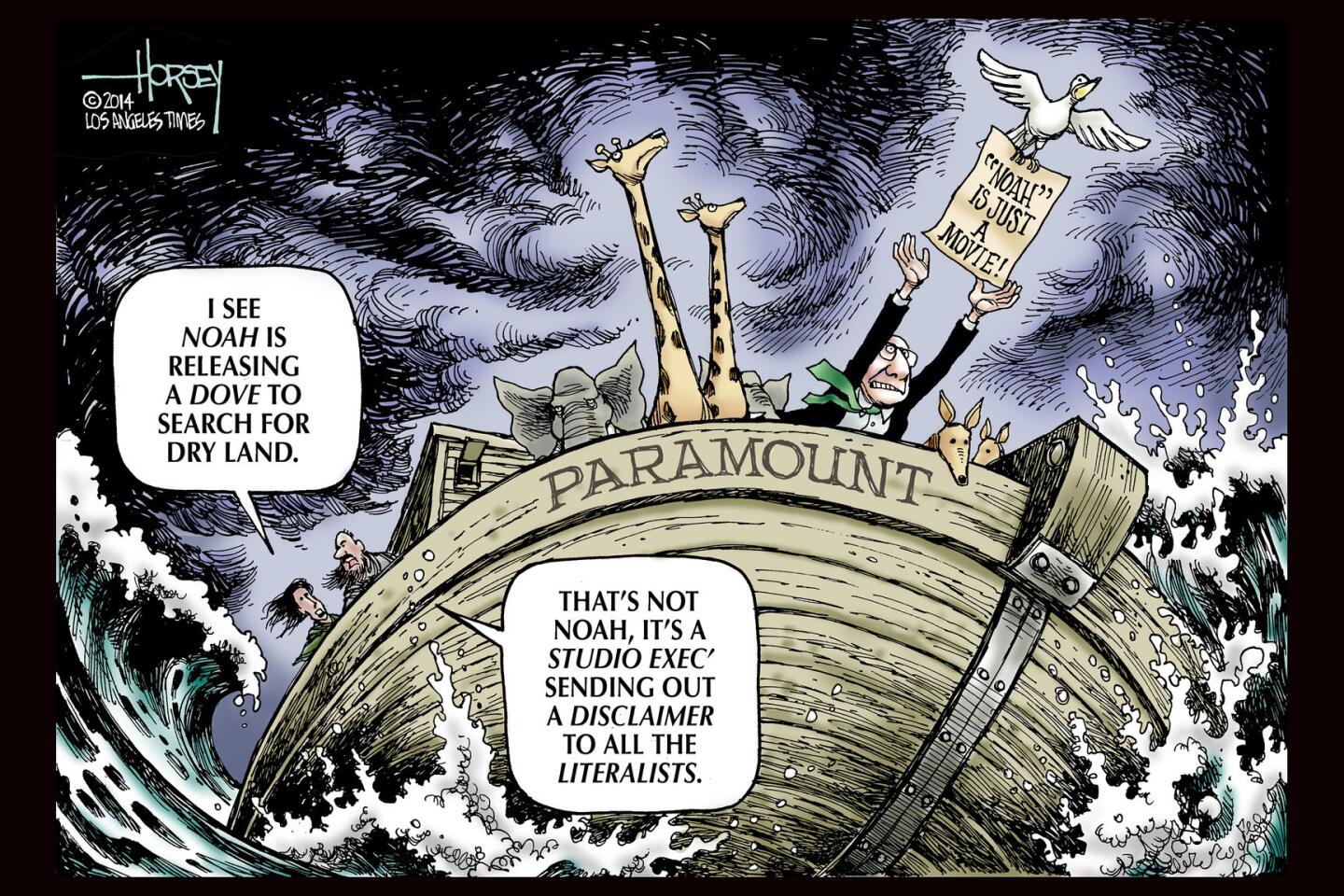Paris attacks: Islamic State rips the veil of civilization
There are few things as horrifying as a merciless fanatic willing to commit any conceivable atrocity for the sake of his religion. Nationalism, political beliefs or pure criminality can drive people to engage in extreme violence and cruelty, but religious zealotry adds a peculiar righteous frenzy that seems more difficult to counter because it is, literally, otherworldly.
As I watched the Democratic presidential debate Saturday and heard the candidates lay out what they would do to defeat Islamic State in the wake of the horrendous terrorist attacks in Paris, I was not reassured. Bernie Sanders, Hillary Rodham Clinton and Martin O’Malley each offered conventional ideas about how to combat Islamic State, but none was especially convincing — not that the Republican candidates are any better. In a meandering interview on Fox News, the GOP’s current front-runner, Ben Carson, was unable to actually name a country he would call on to help in the fight against Islamic State. The rest of the Republican pack has offered only variations of what the Democrats prescribe: airstrikes and some sort of uncertain alliance of Americans, Europeans and Arabs that would take the fight to the murderous fanatics in Iraq and Syria.
But what if conventional arms and conquest of territory are not enough to do the job? With Islamic State and the other Muslim extremist groups, the civilized world faces an enemy that seems unlike those of the last century. The Nazis were evil usurpers who governed a civilized country gone mad. It took a world war to bring them down, but it was a conventional fight ending in an occupation that was able to bring the German people back to their senses. Soviet Communism was a system that could be challenged on many fronts and contained because the men who ruled in Moscow were rational human beings who wanted to live as much as anyone else.
The jihadis of Islamic State, though, are eager to die for their god. Their religious authorities and, in particular, their leader, Abu Bakr Baghdadi, have laid out a vision of an apocalyptic confrontation pitting the forces of the infidel West against an army of “true” Muslims that will bring them total and final triumph. A steady stream of recruits has been drawn in by this ominous fairytale. The grand delusion has been especially luring to gullible youths in the scattered Muslim communities of Europe. Callow teenagers and 20-somethings have morphed into vicious killers.
Over the weekend, a CNN report showed a troop of young Islamic State fighters, all from France, celebrating the Paris attacks by burning their French passports. One of the militants, speaking in French, pledged his “animosity and hatred until you believe in Allah alone.” Another called on the 5 million young Muslims in France to engage in more attacks. “Defend your religion where you are,” he said. “Kill them with knives. At the very least, strike them in the face. To all my brothers in France, I say to them: Start carrying out individual attacks. Be wolves on the earth.”
This is the dilemma facing European and American leaders: Will “taking the fight” to Islamic State in the territories the group now holds fix the problem? Or will it simply inspire a legion of new terrorists to join the battle in other places, such as Paris, London, Brussels, Rome, New York and Los Angeles? Chances are, the answer is the latter. Yet, how can civilized people not fight these militants wherever their deadly fanaticism arises?
There is no easy way out of this. Surrender is not an option in the war that Islamic State has declared against rational, modern societies. As yet, though, the wisest path to victory is not at all clear and any presidential candidate who claims to know a simple way forward is selling bluster, not the hard truth.
MORE ON THE PARIS ATTACKS
Why Islamic State targeted France instead of the U.S.
France launches new airstrikes amid reports that Paris attacks were directed in Syria
Obama under pressure to intensify fight against Islamic State after Paris attacks
More to Read
A cure for the common opinion
Get thought-provoking perspectives with our weekly newsletter.
You may occasionally receive promotional content from the Los Angeles Times.






